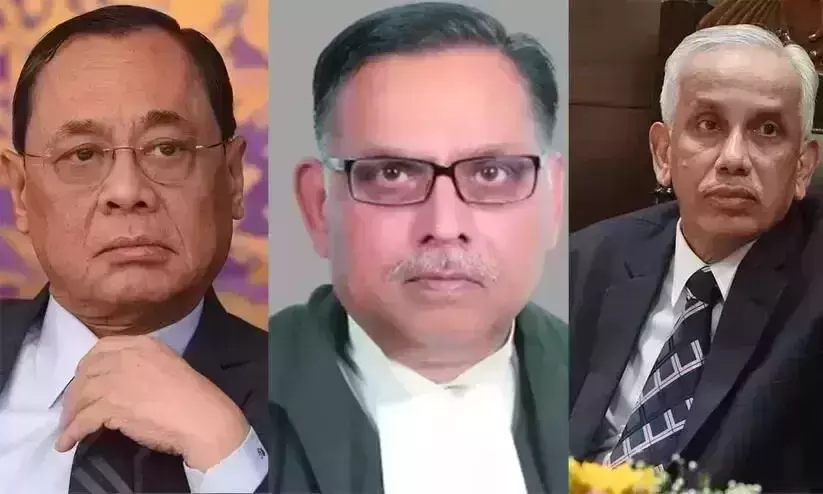
3 judges of Ayodhya verdict hold official posts post retirement
text_fieldsNew Delhi: One of the five judges of the Ayodhya Babri Masjid case, Justice S Abdul Nazeer, has been appointed as the Governor of Andhra Pradesh. Jus. Nazeer is the third judge among the five, who delivered a ruling in favour of the Hindu parties in the case in November 2019, to be appointed to a government post after retirement.
Among the five, Jus. Nazeer was the only Muslim judge. He retired in January this year and got appointed to the post just after a month, raising many eyebrows. Jus. Nazeer was elevated to the Supreme Court in February 2017 from Karnataka High Court.
Besides the Babari Masjid case, Jus. Nazeer was included in the benches which had delivered historic verdicts such as the KS Puttaswamy case, which handled the Right to Privacy, the Triple-Talaq case etc. He also headed the constitution bench, which upheld the Centre's Demonetisation, observing that the action cannot be revoked. He retired after the Demonetisation case ruling.
The other two judges from the Ayodhya case who hold government posts after retirement are Justice Ranjan Gogoi and Justice Ashok Bhushan.
It was Jus. Ranjan Gogoi, former Chief Justice of India, headed the bench that delivered the Ayodhya verdict. Within four months of his retirement on 17 November 2019, he was nominated to the Rajya Sabha, gathering strong criticism. However, he justified the move by saying in his autobiography that he took it as an opportunity to raise the problems of the North-Eastern states in the Rajya Sabha. Therefore he did not hesitate but accepted when he was invited to take the post. The 46th CJI, Gogoi, was the first to become the CJI from Assam.
Jus. Ashok Bhushan was appointed as the chairperson of the National Company Law Appellate Tribunal three months after his retirement in July 2021. The pattern was somewhat similar to Jus. Gogoi's appointment.
The remaining two of the five-judge bench which delivered the Ayodhya case ruling were Jus. SA Bobde and Jus. DY Chandrachude. While the latter is the incumbent CJI and is to retire on November 2024, the former has retired in April 2021.
Though Jus. Bobde is not holding any official posts, he made it to the headlines shortly after his retirement when he met the RSS head Mohan Bhagwat at the organisation's headquarters in Nagpur.






















